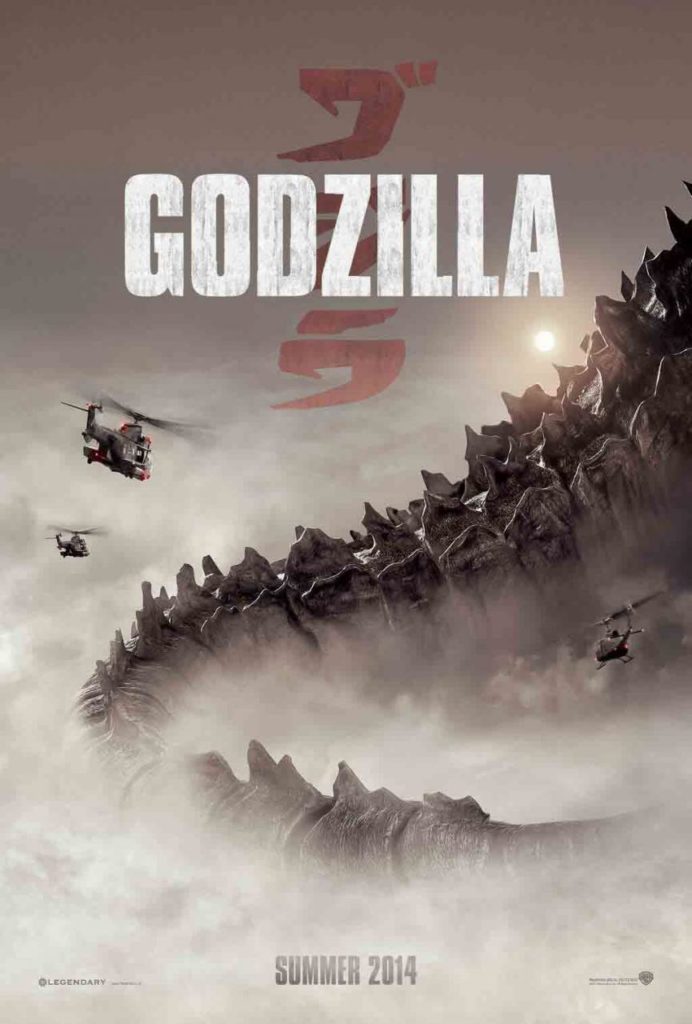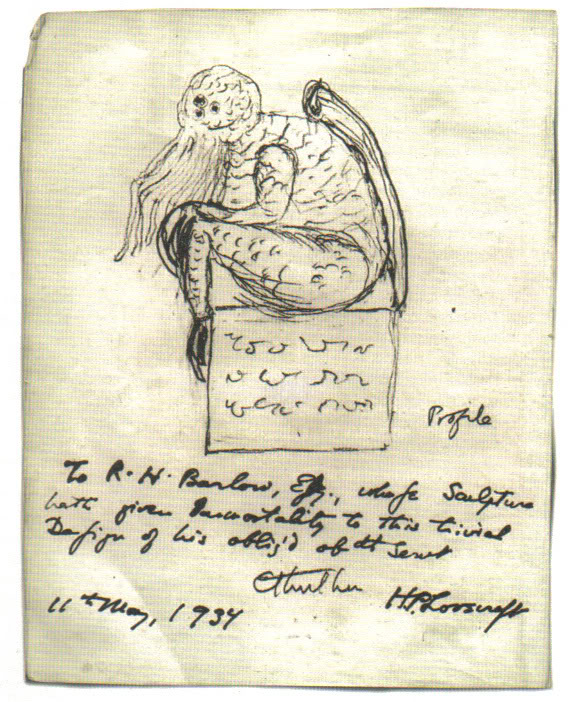How H. P. Lovecraft’s Cosmic Horrors Turn Cliché
Horror fans like myself agree that H. P. Lovecraft is a genre master.
Lovecraft (1890–1937) excelled at stories depicting what’s known as cosmic horror, a latent fear of the unknown that we puny humans could not imagine.
Lovecraft’s work shows this most famously in the monstrous person of Cthulhu, a gigantic being formed by an amalgamation of body parts. In Lovecraftian lore, Cthulhu is one of the Old Ones or old gods who ruled the Earth.
Another beloved Lovecraft story, “The Color Out of Space,” presents a color of some hue that people cannot label because they’ve never seen it. This color destroys a village while mutating the creatures and humans who live there. Meanwhile, the story’s narrator stays unnamed. He or she is a bystander chronicling the events.
Fans call this unique weird fantasy Lovecraftian horror. It’s become a niche. Some creators do this well. Others don’t fully comprehend what this kind of horror is.
Lovecraft’s cosmic fears spread to other horror
In the opening paragraph of Lovecraft’s short story “Cthulhu,” the narrator states:
… We live on a placid island of ignorance in the midst of black seas of infinity and it was not meant that we should voyage far… but someday [the sciences] will open us such terrifying vistas of reality and of our frightful position therein. That we shall either go mad from the revelation or flee from the deadly light into the peace and safety of a new dark age.
In other words, “Curiosity killed the cat.”
Stephen King’s 1408 (2007) explores similar cosmic horror when John Cusack’s character stays in a hotel room from hell. Its evil nature has no rhyme or reason. As Samuel L. Jackson’s character says, “It’s an evil [bleeping] room.” That’s all you get.
In The Void (2017) our main villain, a doctor, connects with another dimension by sacrificing others to cheat death and bring back his daughter. When he gets his wish, his daughter arrives as a monstrous creature with tentacles. But hey! He cheated Death! Hooray, Pops! So what if he can’t kiss her on the cheek? As long as those beady black eyes over razor-sharp teeth gaze at him with love, every moment’s a blessing, right?
Near the end, the hero pushes our transformed villain into the Void. Then the movie ends with the protag and his wife staring up at a black pyramid hovering over them. This is either intentionally vague or lazy writing. We don’t know what the Void is, or whether our protag is dead, where the villain ended up, or anything. The idea is to leave those questions unanswered and thus “add to the horror.”
Another Lovecraftian-esque horror movie, Underwater (2020), follows a deep-sea drilling crew in the Mariana Trench. They encounter and fight underwater creatures, leading to the awakening of “God-Mother” (Cthulhu by another name). The film rips themes straight from Lovecraft’s Cthulhu: man’s curiosity and greed leads to them discovering creatures that should be left to slumber.
Unqualified fear of Cthulhu ignores human nature
I like some of H. P. Lovecraft’s stories. Yet I would say Lovecraft created some ideas that have ultimately mutated into inhuman clichés.
Humans are curious. We’re born to question things, probe, and wonder. We’re born to explore and expand. Why do horror movies exist at all, but to highlight this truth about humanity? We want to know what made that bump in the night. The safest place for a ship is the dock, but that’s not what ships are made to do. Scientists of all disciplines especially show human curiosity, asking questions and getting answers. God never made humans to stand frozen on the precipice of the “boundless and hideous unknown.” He made us to walk right into the unknown.
Humans are resilient. We rarely give ourselves credit for our resilience. Our world can affect us with tragedy, financial changes, and communal groups. But most humans are willing to adapt. Some won’t, but that becomes a matter of choice.

People in the Monsterverse don’t just stare in horror at Godzilla. They also rally to shoot at him (or else realize he’s kind of their protector too).
Humans are defiant. Foolish behavior in one generation becomes revolutionary chic for the next. This defiance expands our knowledge. “Bobby!” Mom says. “Don’t ever go into the wood past nine o’clock at night.” Well, we already know Bobby’s going to do it because he was told not to—because he has human curiosity.
Lovecraft didn’t explore these and many more human attributes. His knowledge was limited in the early 20th century, just as ours is limited in the 21st century. It would be fascinating to see what he would think of today’s times.
In Christ, humans can become fearless
Meanwhile, in the Monsterverse franchise—such as Godzilla versus Kong (2021)—we find the Monarch conglomerate. This misty organization can sedate and chain King Kong! Their facilities all over the world can monitor the Titans. They don’t just stare in horror of the “old ones.” They show braver humanity as stewards of the Earth.
Lovecraftian horror subdues this human aspect under fears of unknown elements and unanswered question. Lovecraft would say there is no way to overcome cosmic fear. To even try is pathetic because we are so very small in a big giant universe.
However, the Bible says, “God has not given us a spirit of fear, but of power and of love and of a sound mind” (2 Timothy 1:7). Many times in Scripture, God tells us to have courage and not be afraid. We don’t know all the monsters, but he does know. Whatever we can’t understand, he comprehends. Jesus said not to worry about tomorrow because we can trust him. Why should we be afraid when our Creator has all the answers? Why should be cower in the corner, afraid to venture out on faith? God is strong and powerful enough to handle those fears.
Once we understand this truth, Lovecraftian horror becomes cliché.





























You touched on my lack of interest in horror. In my day to day walk with Jesus, I’ve learned that there is no horror which doesn’t submit to the wondrous power of love of my King. In my world, demons are a sick joke that are the result of a uncommon fool—commonly known as Satan. He’s nasty, but has no power when Jesus is present.
Hey Dave! Finally able to respond. Thank you as always for your insight.
Oddly enough, cosmic horror has an element of “who the ninja flip do you think you think you are!?!” born from Lovecraft being scared of everyone in an age of briskly paced advancements in science and industry.
Very good article. I never liked Lovecraft’s horror world, though I must admit he is a capable writer.
Very true. Thank you for responding.
Thanks, Parker. I enjoyed your article and observations.